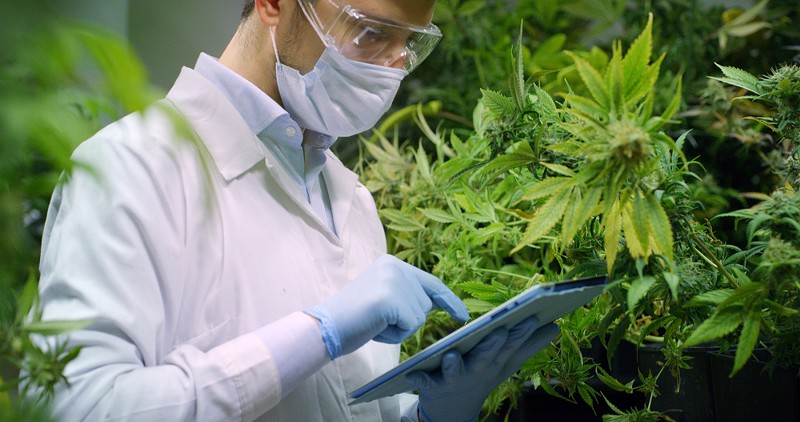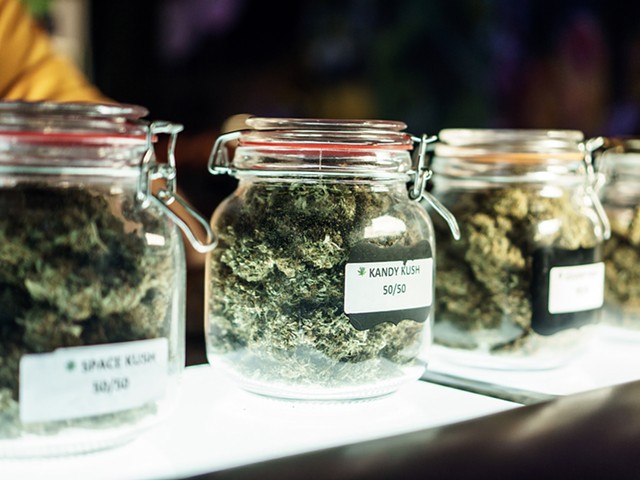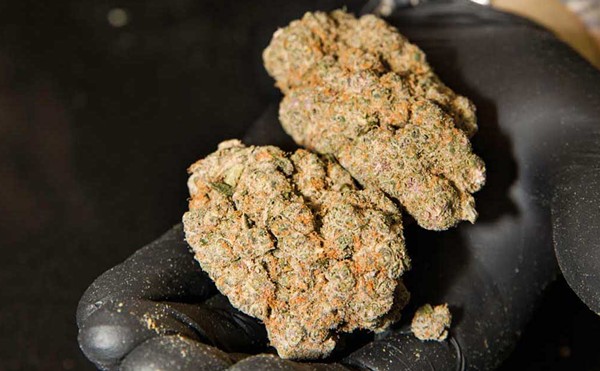Long-stubborn DEA finally gets real about marijuana's medical benefits
[
{
"name": "GPT - Leaderboard - Inline - Content",
"component": "35519556",
"insertPoint": "5th",
"startingPoint": "3",
"requiredCountToDisplay": "3",
"maxInsertions": 100
}
]
The Drug Enforcement Administration’s stubborn opposition to marijuana appears to be going up in smoke.
On Wednesday, the DEA unveiled a proposal to increase the amount of marijuana that can be legally grown for research by 30% in 2020. The anti-narcotic agency has called for 3.2 million grams of cannabis to be manufactured for scientific studies to determine the medical value of marijuana.
It’s a promising sign for cannabis advocates who have long insisted the plant has healing properties. For decades, the DEA classified marijuana as a Schedule I controlled substance, which meant it had no medical value.
"This will meet the need created by the increase in the amount of approved research involving marijuana," the DEA said in a press release. "Over the last two years, the total number of individuals registered by DEA to conduct research with marijuana, marijuana extracts, derivatives and delta-9-tetrahydrocannabinol (THC) has increased by more than 40 percent, from 384 in January 2017 to 542 in January 2019.”
The DEA also is proposing to reduce the amount of Schedule II opioids that can be manufactured in the U.S. next year. The DEA wants to reduce the amount by 31 percent, hydrocodone by 19 percent, hydromorphone by 25 percent, oxycodone by nine percent, and oxymorphone by 55 percent.
“The aggregate production quota set by DEA each calendar year ensures that patients have the medicines they need while also reducing excess production of controlled prescription drugs that can be diverted and misused,” Acting Administrator Uttam Dhillon said in a statement. “DEA takes seriously its obligations to both protect the public from illicit drug trafficking and ensure adequate supplies to meet the legitimate needs of patients and researchers for these substances.”
Although marijuana is illegal on a federal level, numerous states, including Michigan, have legalized its use for medical and recreational purposes.
The DEA's decades-long war on marijuana has put millions of nonviolent Americans behind bars.
In Michigan, lawmakers announced a package of bills this week that could allow for the expungement of low-level, pot-related convictions of more than 225,000 state residents.
Marijuana advocates welcomed the legislation.
“We applaud lawmakers from both sides of the aisle for taking a look at and advancing the public discussion of expungement in light of the change voters initiated in 2018,” Michael Elias, CEO of Michigan Pure Med, a medical cannabis company, said in a statement. “As an entrepreneur and small business owner, I believe expunging marijuana criminal records would help address Michigan’s significant talent shortage, create opportunities for workforce development and help people lead more productive lives. I commend leaders in both parties for continuing the conversation on this important issue, which is long overdue.”
Stay on top of Detroit news and views. Sign up for our weekly issue newsletter delivered each Wednesday.







